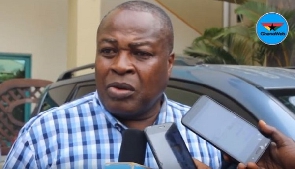Accra, July 19, GNA - Ghana is refining moves to come out with a sustainable Anti-Money Laundering and Proceeds of Crime Laws both aimed at prohibiting the practice and setting up systems to halt criminals using the country for such business.
The move is also to monitor and detect unusual transactions with an understanding of the customer behind the transactions.
A workshop being held in Accra would help Parliament as well as Ministries, Departments and Agencies (MDAs) connected with developing the law to know how the law should be like and the specific areas it should touch on with regards to what pertains in other countries with legislation on money laundering.
The Anti-Money Laundering Bill is before Parliament while the Proceeds of Crime Bill is yet to receive the approval of Cabinet. Addressing the participants, on behalf of Mr Kwadwo Baah-Wiredu, Minister of Finance and Economic Planning, Nana Juabeng Siriboe, Chief Director of the Ministry, said Ghana was on the path of the international network working against money laundering and terrorist financing syndicates.
He said recent revelations of tax avoidance, capital flight and customs and duties evasion all formed part of the money laundering and proceeds of crime activities.
Mr Baah-Wiredu said the enactments of those bills into law would enable the Government to receive and collect currency transaction report and suspicious transaction reports relevant to money laundering and terrorism financing activity from financial institutions and designated non-finance institutions.
"It will also help the Government to work on reports on cross-border movement of currency and monetary instruments to enable a thorough analysis and assessment of the information.
The Minister was of the view that the laws would allow trailing of money transactions in banks and other financial institutions. Dr Paul Acquah, Governor of the Bank of Ghana, said the challenge of money laundering was a global one where money launderers exploited the differences among national anti-money laundering systems and moved their funds to jurisdictions with weak or ineffective laws. Therefore, if countries failed to address money-laundering issues adequately, the crime could become more entrenched. It also has a dampening effect on foreign direct investment if a country's commercial and financial sectors were perceived to be vulnerable to money launderers.
He said it was imperative for Ghana to join the international community in prioritizing the fight against money-laundering and terrorist financing.
Dr Abdullahi Y. Shehu, Administrative Secretary of Inter-Governmental Action Group against Money Laundering in West Africa, said the legislation process and final establishment of the law was vital since the trend today was for money-launderers to not only exploit post conflict situations with their criminal gangs, "but take over countries with weak and non-existent financial and legal framework for action".
He called for a change to cashless transactions since cash transactions were often prone to such illegal activities.
Click to view details



Business News of Wednesday, 19 July 2006
Source: GNA
















